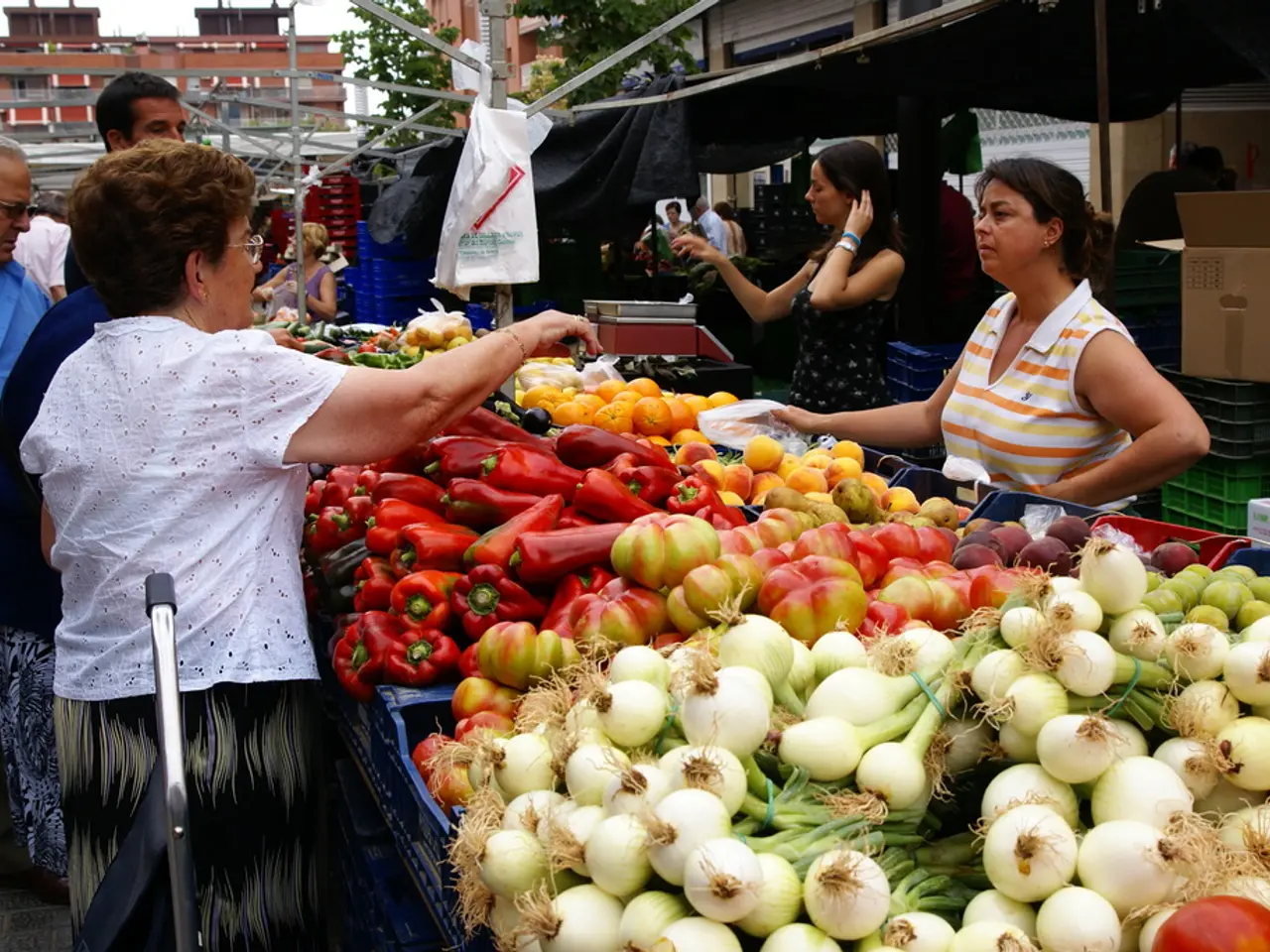Asia grapples with widespread plastic contamination
Rising Plastic Consumption in Southeast Asia Causes Environmental and Economic Strain
The rapid increase in plastic consumption in Southeast Asia, particularly in countries like Bangladesh and India, has resulted in a significant surge in plastic waste generation and environmental pollution. This trend is projected to continue, with plastic use set to nearly double by 2050 [1][2][3].
Environmental Impacts
Southeast Asia has been identified as a hotspot for plastic pollution, with 8.4 million tonnes of plastic waste mismanaged and leaking into terrestrial and aquatic environments as of 2022. This contributes significantly to marine and land pollution [3]. Without urgent policy reforms, plastic leakage is projected to increase by approximately 68-70% by 2050, exacerbating contamination of water bodies, soil, and biodiversity loss [2][3].
Mismanaged plastic waste harms ecosystems, threatening biodiversity and human health due to pollution and chemical exposure from plastics [1]. For instance, in Indonesia, plastic briquettes are used as fuel in tofu factories, while in Bangladesh, single-use plastic bags have replaced traditional jute bags and are now found in streets, on beaches, and clogging drains [1][3].
Economic Impacts
Plastic pollution imposes significant costs on local economies, including damage to fisheries, tourism, and the costs of cleanup and waste management infrastructure [5]. Lower-middle-income countries like Bangladesh and India face the highest financial burdens to address plastic leakage, with ASEAN requiring an estimated USD 178 billion investment by 2050 to curb plastic leakage effectively [5].
Informal recycling sectors prevalent in these countries often deal with unsafe plastic waste handling, creating occupational hazards and limiting economic benefits [2].
Policy and Mitigation Context
Without substantial reforms, the current trajectory will more than double plastic waste, overwhelming existing waste management systems and worsening pollution [1][4]. Ambitious policies that improve recycling, reduce single-use plastics, and expand waste management infrastructure can substantially reduce plastic use and leakage—potentially cutting leakage by over 95% by 2050 in Southeast Asia if effectively implemented [3][4].
However, given the transboundary nature of plastic pollution, regional action alone is insufficient; global cooperation and investment are critical [5]. For instance, Stephanie Reynaud, a polymer chemistry researcher at France's National Centre for Scientific Research, stated that multi-layer plastic bags are a disaster for the environment and cannot be recycled [1].
In conclusion, addressing the rising plastic consumption in Southeast Asia requires large investments and coordinated policy efforts to curb plastic pollution and its associated economic costs [1][2][3][5]. The ban on single-use bags in Bangladesh has led to an increase in the use of polypropylene lunchboxes, but concerns about plastic pollution persist, with many calling for stricter regulations and the banning of non-recyclable plastics [1][4].
- Urgent policy reforms are needed to reduce the projected 68-70% increase in plastic leakage by 2050, which could exacerbate contamination of water bodies, soil, and biodiversity loss.
- The transboundary nature of plastic pollution necessitates global cooperation and investment for effective plastic waste management.
- The economic toll of plastic pollution includes damage to fisheries, tourism, and the costs of cleanup and waste management infrastructure.
- Southeast Asia's plastic consumption has resulted in high financial burdens for countries like Bangladesh and India, requiring an estimated USD 178 billion investment by 2050 to curb plastic leakage effectively.
- The informal recycling sector prevalent in these countries often deals with unsafe plastic waste handling, creating occupational hazards and limiting economic benefits.
- Regional action alone is insufficient to combat plastic pollution, requiring concerted global action and investment for a sustainable solution.
- In Southeast Asia, the ban on single-use bags in Bangladesh has led to an increase in the use of polypropylene lunchboxes, but concerns about plastic pollution persist, with many advocating for stricter regulations and the banning of non-recyclable plastics.
- The data and cloud computing technology offers opportunities to develop more efficient waste management systems and track plastic waste flows in the region.
- Sustainable lifestyle choices, such as reduced food-and-drink packaging, can have a significant impact on reducing plastic pollution.
- The business sector can play a critical role in mitigating climate-change impacts by implementing corporate social responsibility strategies focused on environmental science, personal-finance education, and fintech solutions for promoting sustainable practices in the industry.




